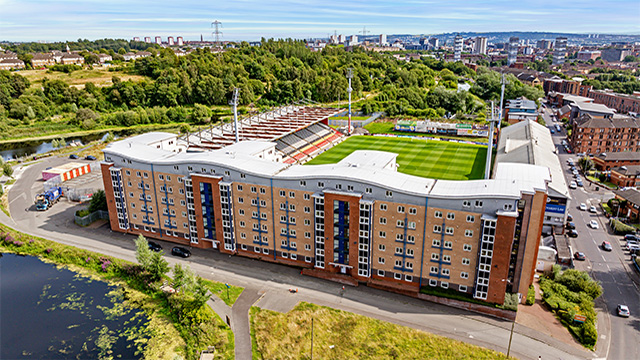Flex offices and management agreement mishaps
COMMENT Hands up, who knows what a management agreement really is? For a start, they are not leases, but the industry is making a big mistake by treating them as such.
It’s a mistake that results in bad or fudged deals between owners and flexible workspace operators, which isn’t good for the market. Fudged deals are, the majority of the time, doomed.
Management agreements are often confused with turnover or profit share leases, which are very different.
COMMENT Hands up, who knows what a management agreement really is? For a start, they are not leases, but the industry is making a big mistake by treating them as such.
It’s a mistake that results in bad or fudged deals between owners and flexible workspace operators, which isn’t good for the market. Fudged deals are, the majority of the time, doomed.
Management agreements are often confused with turnover or profit share leases, which are very different.
It is a service contract; a different business model to a lease with a different risk and reward profile and needs treating accordingly. If you don’t understand the business model, you don’t know what you are signing up for, which is risky.
Risk and reward
Think of a management agreement for flexible workspace like a cleaning contract. A cleaning company is hired to clean your offices and charges enough to cover their costs plus a margin.
The margin charged reflects the low risk of the deal to the cleaning contractor. There is no real estate interest or real estate transaction.
It’s the same with a management agreement. A professional company is hired on a service contract to run office space on your behalf. It doesn’t involve a lease.
If a flex space operator takes a lease on a building, the risks sit with them. If they sign a management agreement, it doesn’t – the risk is much lower for them and the margins charged should reflect that. They should, however, be rewarded when they do a good job.
Misunderstanding this relationship means contracts don’t always reflect both parties’ relative risk and reward, resulting in disproportionate margins being added.
The risk to the operator should be having the contract terminated if they are doing a bad job, but even then, only if appropriate and realistic KPIs have been set. This is another area that can get fudged.
I’ve seen deals that have tied the building owner into compensating a poorly performing operator for the earnings they would have got had they been doing a good job.
Operators are naturally trying to protect their position in what is a very hands-on service, but there must be a means for owners to extract themselves from the contract if it’s not delivering sufficient revenue.
When entering into a management agreement, owners need to understand the operator’s business, their revenue lines, expenses, how profits are calculated and under what criteria. Who is paying for what, what is included and what isn’t? It is easy to be wooed by high desk rates and rising projections. But what is realistic and right for the market within which the space operates? How many desks are being squeezed in to boost revenue, and will that make the space less attractive to occupiers and ultimately impact returns?
Rents on traditional leases don’t tend to fluctuate, while flexible workspace fees can because of changes to local supply and demand. However, this isn’t always reflected in operators’ projections. Operator performance is the biggest headache for owners, and not fully understanding the terms of the management agreement can play a part. Good businesses make a 10-20% margin, but if an operator takes between 10% and 17% of the income, how can you make money?
Burned fingers
Understanding the data and looking beyond the top lines when negotiating a management agreement is important. Similarly, understanding how the numbers relate and compare to the wider market. Upswings in the market should be mutually beneficial, but that isn’t always the case.
Due diligence is key; having advisers who fully understand management agreements and know what to look for and what is being negotiated. A contract lawyer rather than a real estate lawyer is generally much better suited to advising on these sorts of deals, for example.
Management agreements aren’t inherently bad, and there are many benefits to having a good agreement in place. There is the potential for increasing above-market returns. In a portfolio, flexible workspace is an asset; it’s an extra amenity that can be offered to tenants elsewhere in an asset as the building owner retains control of the space.
A good relationship between owners and operators is key, working together to ensure the space is successful for both businesses. Bad deals on management agreements are causing and will continue to cause problems for the market. Fingers get burned, reputations get tainted, and trust is eroded. We need to change that.
Will Kinnear is a director at Hewn
Image from Hewn











